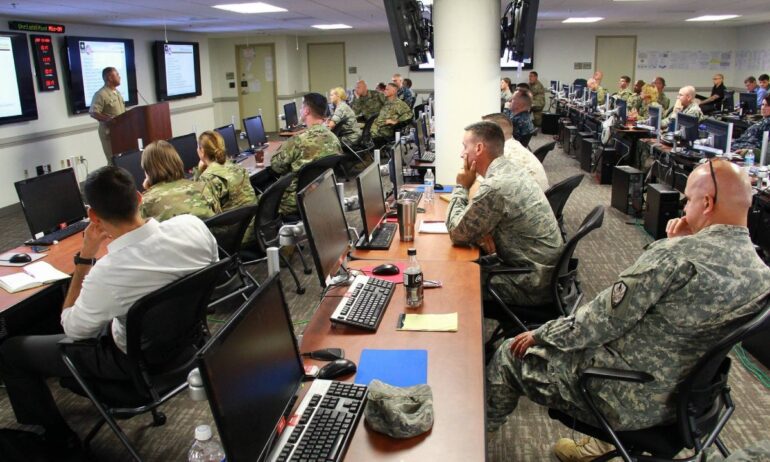TL;DR:
- The Army is seeking guidance on securing datasets that will power its AI/ML tools.
- The Army Science Board is releasing a report on “Testing, Validating, and Protecting Army Data Sets for Use in Artificial Intelligence and Machine Learning Applications.”
- The report will examine data security methodologies and techniques, as well as testing AI-enhanced systems for battlefield applications.
- The Army is calling on industry, academia, and other sources to provide insight and technology information for the report.
- Areas of interest include using cryptographic algorithms and advanced security measures to protect sensitive data, anonymization and pseudonymization techniques, and inspection and analysis strategies for evaluating dataset security.
- The Army is also interested in methods to ensure data used in battlefield systems hasn’t been tampered with, remediation of compromised datasets, and robustness testing against adversarial AI technologies.
- The Army Science Board has been exploring AI/ML applications in defense for many years.
- Overall, the Army is positioning itself to be a leader in the use of AI/ML in defense by seeking input from a variety of sources and exploring various methodologies and techniques for securing its datasets.
Main AI News:
The Army is seeking guidance from various sources on how best to secure the datasets that will power its future artificial intelligence (AI) and machine learning (ML) tools. This request comes as the Army Science Board prepares to release a comprehensive report titled “Testing, Validating, and Protecting Army Data Sets for Use in Artificial Intelligence and Machine Learning Applications.” The report will delve into data security methodologies and techniques that the Army can use to safeguard its datasets, as well as testing AI-enhanced systems for battlefield applications.
To inform its report, the Army is calling on the industry, academia, government laboratories, non-traditional contractors, small businesses, Federally Funded Research and Development Contractors, and other sources to provide insight and technology information. The board is interested in exploring a range of topics, including using cryptographic algorithms and advanced security measures to protect sensitive data, anonymization and pseudonymization techniques, and inspection and analysis strategies for evaluating dataset security.
Other areas of interest include methods to ensure data used in battlefield systems hasn’t been tampered with, remediation of compromised datasets, and robustness testing against adversarial AI technologies. Additionally, the board is also exploring testing for “robustness against adversarial AI technologies and assessment of system performance under various realistic scenarios,” alongside accuracy of AI-enabled systems against threats, “for example, pitting Army units, against an opposing force with intent to win, in joint experimentation or training exercises.”
The RFI is also soliciting guidance on validation and verification methods for AI/ML datasets, integration, and interoperability strategies, and bolstering user confidence and reliability in the systems. While no contracts are expected to arise from the report, the Army Science Board may conduct additional market research based on its findings.
It is worth noting that the Army Science Board, which provides independent advice to the Army on a range of procurement, technology, and business functions, has been actively exploring the applications of AI/ML in defense for many years. This includes a 2019 report on the potential battlefield applications of the technology and the plans of near-peer rivals like China and Russia for its use. The board’s efforts are part of a broader push by the military to leverage the latest technology to achieve its mission objectives.
Overall, the Army is seeking to stay ahead of the curve when it comes to AI/ML technology, and this request for information is just one example of how the military is taking steps to ensure it has the necessary tools and knowledge to do so. By soliciting input from a variety of sources and exploring various methodologies and techniques for securing its datasets, the Army is positioning itself to be a leader in the use of AI/ML in defense.
Conlcusion:
The Army’s efforts to secure its datasets for use in AI/ML tools have important implications for the market. As the Army looks to stay ahead of the curve in this area, it is likely that there will be increased demand for technology and expertise related to data security, encryption, anonymization, and other related areas.
Additionally, the Army’s focus on testing AI-enhanced systems in battlefield applications could have significant implications for the future of military technology and its use in other sectors. Overall, businesses that can offer innovative solutions in these areas may find themselves well-positioned to capitalize on the growing demand for AI/ML technology in defense and beyond.

